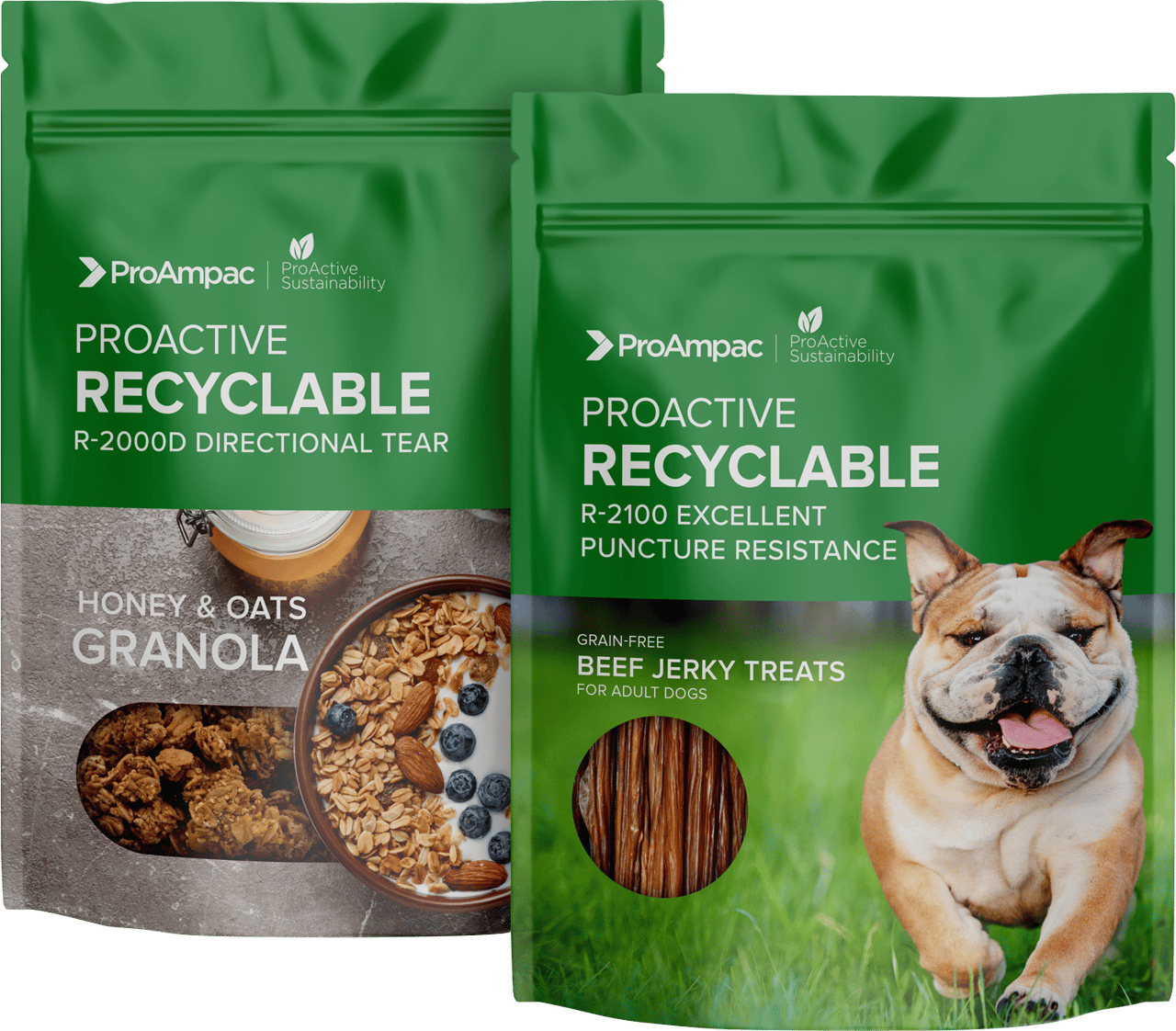
“Drop-in” Film Solutions, Private Label Trends and Increased Plastic Recycling
With such a strong effort by many stakeholders over the last two years, the packaging industry is moving past the plastic-in-the-sea messaging of some years ago with more positive news about increased recycling.
By Grant Gerke
In a recent interview, Claire Sand, owner and CEO at Packaging Technology and Research, says drop-in film solutions — bio-derived polymers — are being adopted by converters and consumer packaged goods (CPG) companies so they can replace traditional, multi-layer laminates that can’t be easily recycled. Plus, co-packers are avoiding investing in new equipment with this new film substrate’s ability to work with existing machines.
“In material science, we’re seeing a lot of switching from fossil-derived polymers to bio-derived polymers such as bio-derived polyethylene, ethylene glycol, PET, and terephthalate,” adds Sand. “These are essentially “drop-in” solutions with a much lower environmental impact and also require fewer conversion resources.”
One company seeing this trend and making recent news is ProAmpac, Cincinnati, OH, which recently unveiled the R-2000D polyethylene-based film line. The company said “the new film structure is designed to be a drop-in replacement for conventional multi-material laminates” and can be used to run at high-speeds on any form/fill/seal equipment. The drop-in film solution can replace high-barrier: PET/PE; Nylon/PE; PET/metallized PET/PE; and in some cases PET/foil/PE.
“The film underwent multi-year material research and development, and can run on high-speed filling lines without facing film or ink distortion in the seal area, especially for products with a reclose feature,” says Hesam Tabatabaei, VP of product development and innovation at ProAmpac.
ADVERTISEMENT
Private Label Inroads
Another trend gaining momentum among retailers is the move by private labels to source more sustainable packaging films and be out front with messages around sustainability to consumers. Walmart just announced an increase in its post-consumer resin (PCR) use in its private label packaging in North America, while the PCR remained flat globally, according to the company.
In North America, Walmart increased its percentage of PCR in private brand packaging from 7% in 2019 to 9% in 2020 — Walmart includes Canada, U.S. and Mexico in its North America calculations. Walmart is shooting for 20% PCR in North America and 17% globally by 2025, according to Resource Recycling.
“When you look at most categories, you see private label dominating,” says Sand. “And we have retailers now who are really trying to make the right decision, with Kroger being a good example. Soon private label brands will have that positioning with consumers.”

ProAmpac says the new R-2000D polyethylene-based film is designed to be a drop-in replacement for conventional multi-material laminates.
Photo courtesy of ProAmpac.
Increased Recycled Rates
With such a strong effort by many stakeholders over the last two years, the packaging industry is moving past the plastic-in-the-sea messaging of some years ago with more positive news about increased recycling. Tesco, based in the U.K., made headlines when it announced it would be able to recycle any soft plastic packaging and could exceed more than 1,000 tons per year, according to the company.
According to the recycling organization, optical sorting technology is aiding in the advancement of soft plastic recycling; keeping plastic out of paper streams. The large supermarket chain rolled out a 171-store trial earlier this year and the list of recyclable plastic includes: clear film for fish, bread bags, fruit and vegetable bags and more.
During the trial, “85% of customers said the store collection points added convenience to their recycling effort and helped increase the total amount,” according to UK Plastics Pact, a not-for-profit company.
“We’re tackling the impact of plastics by removing and reducing it as much as possible, helping customers move to reusable alternatives, and ensuring they can recycle everything that’s left,” says Sarah Bradbury, Tesco’s director of quality in packaging insights.
Lead photo by Jeffrey Hamilton / DigitalVision via Getty Images.
October 2021 // flexpackmag.com
